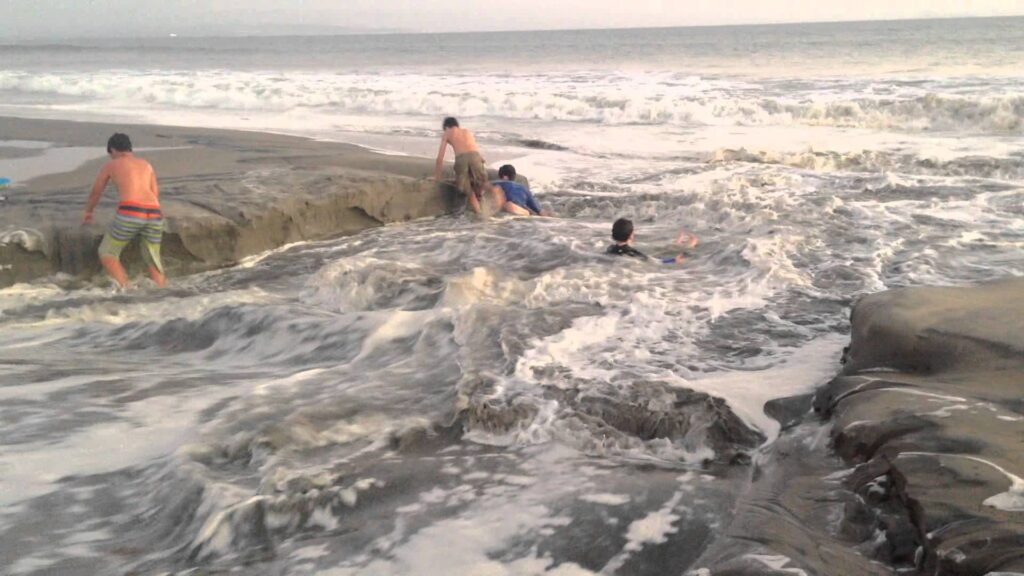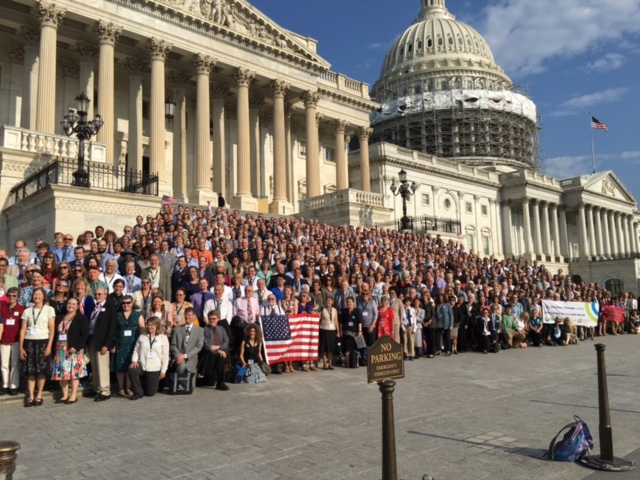Contributing writer: Gloria Tierney

If we can rest easy here in Coronado that we are prepared for any predicted rise in sea levels due to global warming, but understand that that this is a larger issue than our beautiful island home, what can we do?
 Should we ride our bikes uptown more often, take the free summer shuttle, feel virtuous that we don’t have air-conditioning?
Should we ride our bikes uptown more often, take the free summer shuttle, feel virtuous that we don’t have air-conditioning?
Marshall Saunders, Coronado resident and founder of the Citizens’ Climate Lobby (CCL), reflected that while these actions reflect good intentions and a commitment to the solution, one extra bike ride or the changing of one light-bulb isn’t going to stop the warming of the Earth.
Saunders said that “if the U.S., and the whole world, doesn’t limit and reduce carbon emissions in a fairly rapid manner, people can do all sorts of things, but it won’t matter.”
Our vote is our most powerful tool we have to combat global warming.
We need to elect leaders, at the national level, who will work with the rest of the world to mitigate and reduce global warming. There is bi-partisan support for these efforts.
The CCL helps our members of Congress focus on this issue. The CCL supports the Climate Solutions Caucus which boasts sixteen members of the U.S. Congress.
Bipartisan, the caucus consists of eight Republican and eight Democrats. Saunders explained that when a member of Congress seeks to join, he or she must bring with them a member from across the aisle.

Coronado’s U.S. Congressional Representative, Scott Peters (D-CA -51), is a member, along with seven other Democrat members of Congress and eight Republican members of Congress.
The Caucus itself was founded and chaired by Florida representatives, Rep. Curbelo (R-FL-26) and Rep. Deutch (D-FL-21). Saunders explained to me that Florida is really “ground-zero” for U.S. climate change impact.
To date, the CCL has had over 1,500 meetings with the 535 members of Congress. This year alone, over 16,600 letters reached the desk of U.S. Congressional Representatives written by CCL volunteers and members.
New construction in Coronado is already more energy efficient because of elected representatives.
Already the California State Legislature, under a Republican governor, Arnold Schwarzenegger, passed a zero net energy goal for new construction by 2020.
I’m losing some of you here…
So the main focus of the CCL is to lobby Congress for a Revenue Neutral Carbon Tax Exchange.
Knowing I was going to lose most of the Coronado Times readership right here if I didn’t explain how a Carbon Tax Exchange wasn’t going to increase taxes, regulation, and big government, I quickly asked Saunders: “How radical is the idea?”
His response was: “I don’t think it is radical at all. It’s absolutely necessary if we are going to preserve the planet.”
In 2012, our California elected representatives put in a carbon exchange program that is called “Cap-and-Trade.”
I’m sure some of you are skeptical of this program and the implementation of something similar across the nation. You can read more about the carbon exchange on the CCL website: http://citizensclimatelobby.org/
There is also a Wall Street Journal article co-authored by U.S. Secretary of the State for President Reagan, and 1992 Nobel laureate in economics, Gary Becker supporting a revenue neutral carbon tax.
Let’s invite conversation and information.
Imperial Beach did invite an expert in climate change to speak to their Council. While not presented with this idea, Downey independently emailed the Coronado Times: “I do believe … that we should hold a workshop to allow Coronado residents to review the information available into possible sea level rise scenarios for Coronado, and possible presentations from the Navy and the Port about the planning those agencies have undertaken to strengthen their facilities to withstand sea-level rise.
The information would allow our large hotels along the water, the Navy and the Port to share the information already gathered with the greater Coronado community.”

Saunders, a man of passion, patriotism, and action
Intellectually curious, Saunders said he read about climate change in books and the news and thought, “this can’t be true,” but the more he researched and read scientific papers, esp. by Scripps Institute of Oceanography, NASA and NOAH, the more concerned he became.
Saunders previously lobbied for humanitarian aid, basics, HIV, oral re-hydration kits, in the developing world, and “saw extraordinary results in those lobbies.”
He realized that he needed the same methodologies used for humanitarian work applied to mitigating the impact of global warming.
Whether you agree with Saunders or not, it’s hard not to view him as a fierce member of our citizen democracy.




